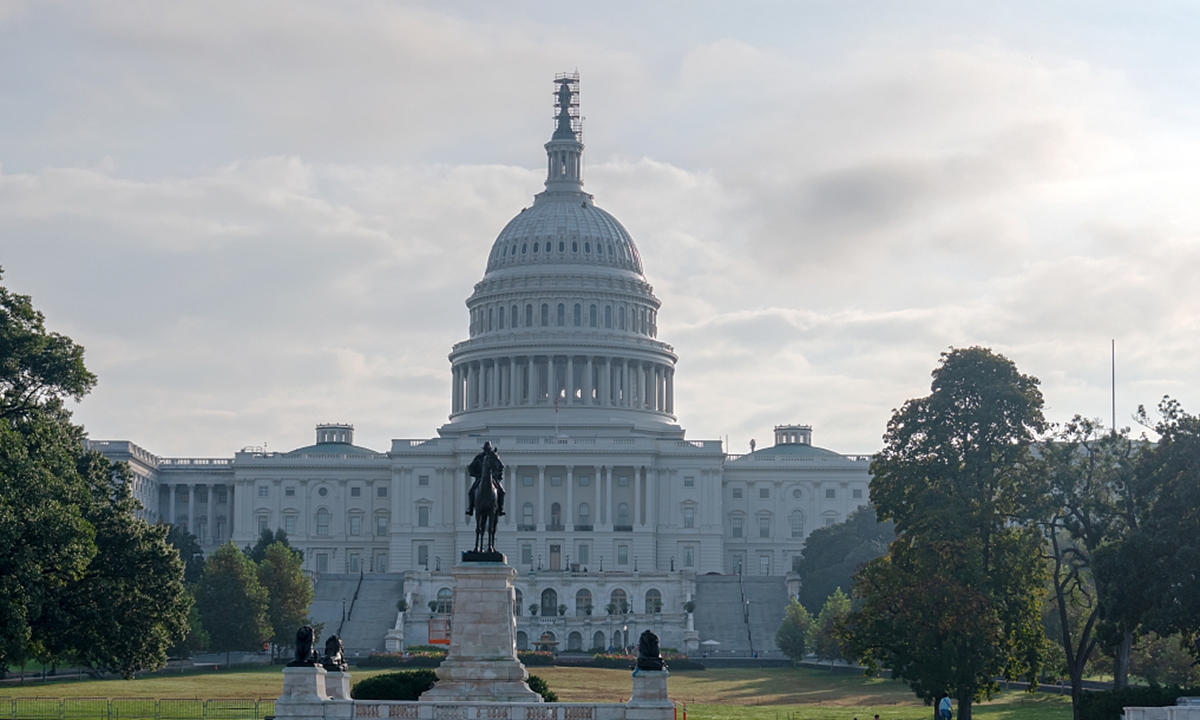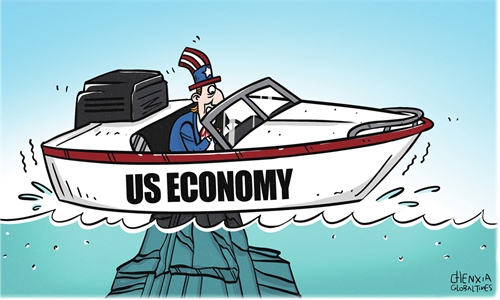
US congress Photo:VCG
US House of Representatives Speaker Mike Johnson unveiled a Republican stopgap spending measure on Saturday aimed at averting a federal government shutdown in the coming week, but the proposed measure quickly ran into opposition from lawmakers from both parties in Congress, Reuters reported.
Usually, Congress can reach a bipartisan consensus at the last minute on a compromise to narrowly avert a government shutdown. Even rare cases of short-lived shutdowns didn't affect government debt service payments. Yet, there is a hidden danger in the runaway deficit numbers and political divisions over the debt ceiling and government funding. This actually highlights the absence of real concern and reflection by politicians about the sustainability of US fiscal policy and the increasingly uncontrollable government debt.
Johnson's stopgap came one day after Moody's lowered its outlook on the US credit rating to "negative" from "stable," a move that has put the US government's fiscal status in the spotlight again. The ratings agency said in a statement that continued political polarization within the US Congress raises the risk that lawmakers will not be able to reach consensus on a fiscal plan to slow the decline in debt affordability.
Moody's change of outlook drew immediate criticism from President Joe Biden's administration. The government's reaction is not hard to understand, because a downgrade could be seen as a criticism of the US government's fiscal policy and ability to lift the economy, which, particularly in an election year, could be used by politicians to rally voters or attack their opponents.
But it is also hard to defy market concerns over the runaway US debt in the past few years. The Moody's downgrade is a reminder to the US that if it does not take its deficit and debt problems seriously, market confidence in its Treasury debt will not last forever.
There is no denying that the US government may want to increase revenue by raising taxes and other means, but the bipartisan fight always makes the debt problem difficult to address. Also, given the effect of electoral politics, when both parties are trying to win over voters by either cutting taxes or increasing spending, it only leads to debt expansion - and neither party wants to really address the debt burden. This was increasingly evident after Biden signed a bipartisan bill that suspended the debt ceiling until 2025.
It is hard to estimate how much US debt will expand in the coming years. Even now, the number is exceptionally high. US public debt outstanding currently sits at $33.6 trillion and is expected to surge by $20 trillion to $54 trillion within the next decade amid "fiscal excess in the 2020s," Bank of America strategist said last week.
Adding to the burden is the surge in annual interest payments caused by spiking bond yields. Those payments are taking up a bigger slice of the federal budget and widening the deficit. Annualized debt interest payments by the US crossed $1 trillion in October, according to a Bloomberg analysis.
Even worse, with the continuous expansion of the debt and still-high interest rates, the rising proportion of interest payments to fiscal revenue will directly affect debt sustainability.
The political standoff over the debt and deficit problems has long been an economic battleground between the US parties, but it is now taking an increasing toll on its economy. As the world's largest economy, US policy choices have important spillover effects on the world economy, which is why it is being urged to adopt reasonable fiscal and monetary policies to avoid transferring its risks to the world.
Last but not least, the risk of a hard landing in the US economy could further exacerbate a global crisis caused by US debt and its currency.



